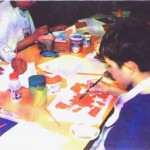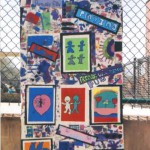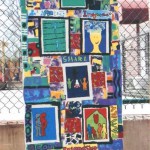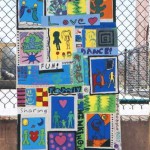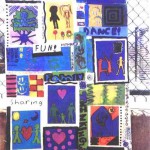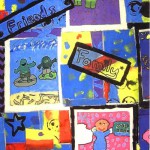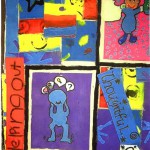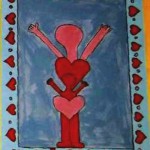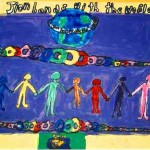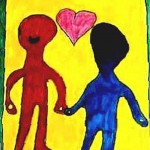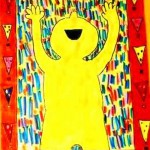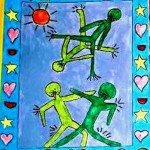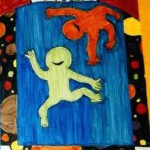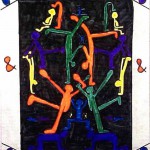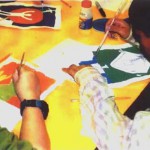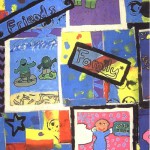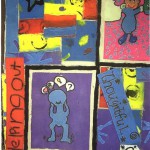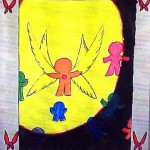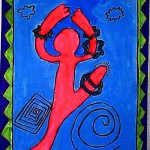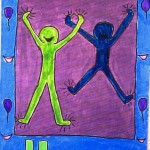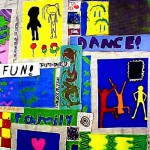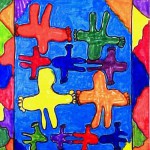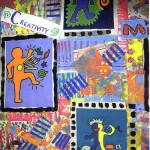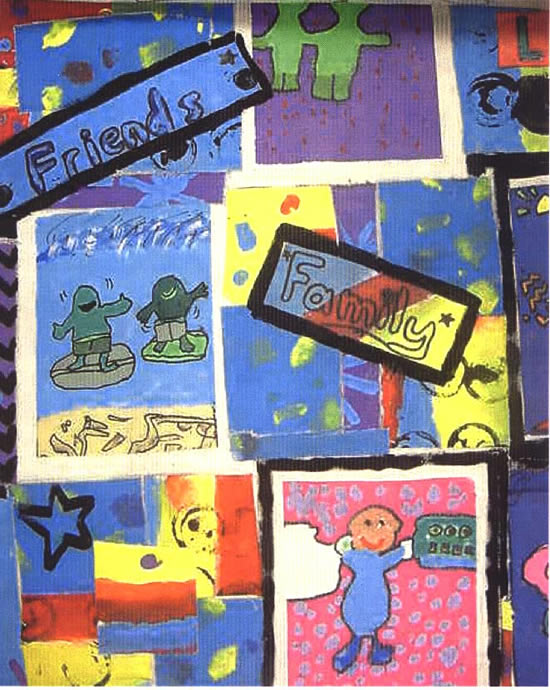
Categories
- Curriculum: Art Criticism, Community Service, Language Arts, Social Studies
- Age/Grade: Elementary 2, Elementary 3, Middle School
- Subject: Drawing, Exhibition, Painting
- Materials: Markers, Mixed Media, Paint
- Institution: Skokie School
- Location: Skokie, Illinois
- Duration: 2 Classes
Description
Using the "Posters with a Message" Lesson as a starting point, this project allows students to exhibit their work publicly and address the related concerns of presentation and observation.
Objective
To learn about Keith Haring, a contemporary artist.
To learn that art can make social statements and be created in or for public places.
To have the students use a word or phrase with a positive theme and create an image that depicts the theme, in the Keith Haring style: bold and simple designs with flat, bright, and meaningful colors.
To learn about composition, color theory, line design, and symbolic images.
To work collaboratively to create one piece of artwork.
Resources
Materials
Canvas
Acrylic paint
Sketch paper
Pencils
Brushes
Glue
Scissors
Dowel rods
Rope
Materials will vary according to how and where you choose to display the work.
Procedure
CURRICULUM
Design, composition, Color Theory, Art History
DESCRIPTION
Students were introduced to Keith Haring by using the website: www.haringkids.com. This website is composed of a biography of Haring's life and art, posters that he created, snapshots from around the world, activities, games, an interactive coloring book, flipbooks, morphs, kids art, and books. I concentrated on his biography, posters, flipbooks, and morphs. The website was very valuable because it brought Haring's work alive with animation. The purpose of my project was to have the students create a poster that artistically told a message. Keith Haring used bold colors, simple shapes, and repeated symbols to convey his message. My students were asked to pick a positive word or phrase and create an image that represented this word or phrase. They were to be inspired by Haring, but of course, were told that they were the artists. Some of the words that were chosen were family, love, friendship, endurance, skill, justice, unity, fun, excitement, and celebration.
PROCEDURE
The second project was a large endeavor that included one of my art classes and an inner city classroom from Hope Academy, in Chicago. The purpose of this project was for Children of different social and economic backgrounds to come together and created art! I used the same motivational techniques as I had in "Posters with a Message", the haringkids.com website and my posters, to introduce the project.
Each child was to create an image inspired by a word or phrase. The word was not to be included on the front of their square, but it was written on the back. They needed to discuss their word among their table because each person's word had to be different. Canvas and acrylic paint were the materials used so the children received a lesson on painting. After their individual squares were completed, each table needed to design and paint canvas (several pieces) that would later be used to create a "quilt like" border for their banners. Printmaking techniques, such as found object stamping, were demonstrated. Every student painted his or her word on another piece of canvas. Assembling each banner really needed teamwork. The students had to arrange their individual squares on the background piece of canvas. Then they cut up and arranged their painted fabric around their individual squares. The words could be incorporated at this time or could be glued on top. These banners were not only visually successful, but they brought two very different groups of children together working in a positive manner.
Questions
Name some places that art is exhibited. Name some ways in which art is displayed. How does the meaning of artwork differ when it's hung in different places? When it's hung in different ways?
Does the context of who is looking at the artwork change the meaning? How & why?
Why would an artist choose to display their work in this manner?
Extensions
This lesson is part of a two-part project. Refer to Posters with a Message to see the first part.
